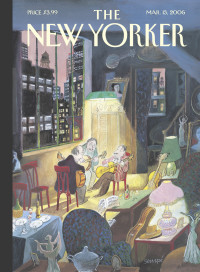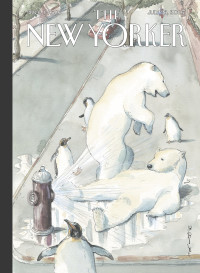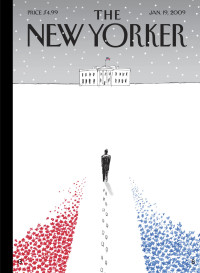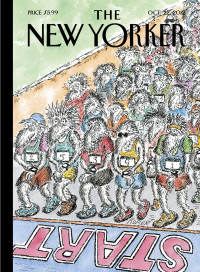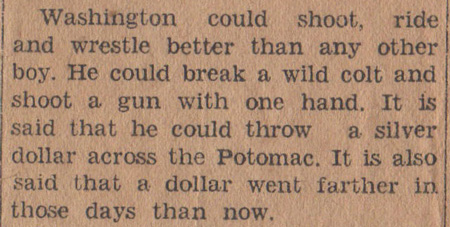For years, I have had a pot of chocolate mint and a little terracotta trough of basil in the windowsill. For almost as long, the mint and the basil have had flies. (The adjacent geranium, for some reason, is immune.) I don’t exactly know what kind of flies they are. They’re smaller than fruit flies. Gray. Dusty-looking. They don’t bite, or they don’t bite me, anyway. They’re not skilled in evasive maneuvers. If you clap in the vicinity of one, you usually annihilate it. Sometimes I’ve even managed to grab one out of the air one-handed.
I haven’t figured out their life cycle exactly, but in one instar or another, they spin disorganized, misty webs over the plants’ leaves, which turn brown, in a sickly, mottled way, and then fall off. The flies, therefore, must go. I am too squeamish, however, to use pesticides inside the apartment on herbs that I am in the habit of eating. Snipping off the damaged leaves helps, but not much and not for long. The furthest I have gone in the chemical direction is insecticidal soap, whose labels proclaim its all-natural, organic nonthreateningness. Indeed, its mildness seems proven by its inefficacy. A thorough dousing with insecticidal soap seems to clear the herbs for a few days, but the flies always return. Perhaps there’s a reservoir of flies hiding elsewhere in the house—maybe in that bark that the orchid lives on, for example—or maybe the flies are only vulnerable to the insecticidal soap at one or two of their life-stages. In the latter case, if I were able to remember to spray the herbs at regular intervals all the way through a life cycle, I would succeed in eradicating them. It’s an idea, anyway, and so from time to time I have given myself strict instructions to suds down the herbs every other day even if I see no signs of the flies, and to continue with this schedule for, say, two full weeks. But I never make it to two full weeks, or however long a generation of flies lasts. After the second or third iteration of spraying, I forget. Or I run out of insecticidal soap. And the flies come back.
There have been two recent innovations in the technology of my warfare, however. About a month ago, the basil reached more or less the end of the line, and instead of immediately re-seeding, I was inspired to freeze the soil for a few days. (The label on a recent purchase of blue jeans had advised freezing instead of washing them, a practice that against all my instincts seems to work.) The flies declined noticeably, even though the mint and geranium remained at room temperature. Once new basil had sprouted, the blow couldn’t be repeated. Still, the small success filled me with a spurious hope, and casting about for another novel weapon system, I hit upon . . . the vacuum cleaner.
It is so pleasantly absolute. Whenever I water the herbs, a few flies rise from the soil where they’ve been hiding and hover indecisively. And now I suck them out of the universe with our Dyson’s attachment-less maw. I’m not sure the vacuum cleaner works any better than the insecticidal soap—I’ve been vacuuming the herbs for two weeks now, and there are still a few new flies every morning—but it’s much more satisfying. The flies are so decisively gone, once the Dyson has inhaled them. It’s a bit rougher on the herbs themselves, unfortunately. Now and then one of the mint’s runners or stems gets snuffled up by the Dyson and rattles around inside its tube until I tug it free. The leaves, afterward, are raggedy, and they blacken at the torn edges. From time to time, too, a clot of dirt is accidentally raptured.
My war makes no sense, economically speaking. I can get a week’s supply of basil and mint for $1.50 each at Fairway, and even at a freelance writer’s low wage, I must be spending much more in labor. Nonetheless, I continue. Murder by vacuum cleaner is more, shall we say, engaging than spritzing with insecticidal soap ever was, and I’ve kept at it for many more days than I ever managed to continue with spritzing. I find myself daydreaming about it. Last night, after I was awoken by a mosquito bite, I wondered if I should start vacuuming the bedroom for mosquitoes every evening. This morning, as I tapped the basil pot and dislodged one or two of the gray enemy into the perilous air, I imagined that someday I would have a little domestic drone that would regularly visit, Roomba-like, my houseplants, gathering in the winged unwanted.

